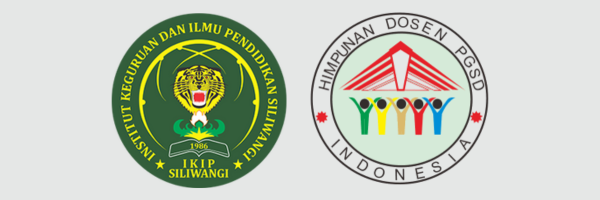CRITICAL PEDAGOGY IN THE ERA OF THE INDUSTRIAL REVOLUTION 4.0 TO IMPROVE DIGITAL LITERACY STUDENTS WELCOMING SOCIETY 5.0 IN INDONESIA
DOI:
https://doi.org/10.22460/pej.v5i1.2073Abstrak
Society 5.0 is a condition of society that is integrated with technology. This is closely related to the 4.0 industrial revolution which is also known as the disruption era. This reality is both a challenge and an opportunity for educators as part of society 5.0 in improving the quality of education as a vehicle for building a critical, cultured, creative, and futuristic generation. Based on these thoughts, the long-term objective of this study is to build futuristic pedagogical competencies. The specific target of this research is to find a pedagogical best practice to increase students' digital literacy in the digital era in welcoming society 5.0 in Indonesia. The research model used in this study is a mixed-methods research model. The sample of this research is students of the University of Pendidikan Indonesia in the semester I with 25 respondents. The research instrument was the test material (pretest-posttest) and semi-structured interview guidelines. From the data analyzed, that the significant value of 0.000 <0.050 (H0 is rejected). This shows that the mean pretest score is significantly smaller than the average posttest score. In line with this, the results of the interviews show that students are more careful with information obtained from the internet after treatment in learning. In other words, the application of a critical pedagogic model has an impact on improving students' digital literacy.
Referensi
Ancok, Djamaludin. 2000. “PSikologi Dan Tantangan Milenium Ketiga: Dampak Teknologi Internet Pada Kehidupan Manusia Dan Pengelolaan Institusi Pendidikan Psikologi.†Psikologika: Jurnal Pemikiran Dan Penelitian Psikologi.
APJII. (2020, November 16). Hasil Survei Penetrasi dan Perilaku Pengguna Internet Indonesia 2019-2020. https://apjii.or.id/content/read/39/410/HAsil-Survei Penetrasi-dan-Perilaku-Pengguna-Internet-Indonesia-2018
Bawden, R.J. (2010). Messy issues, Worldviews and systemic competencies. Chapter 6. p.89-102 / In C.P.Blackmore (ed). Social learning systems and communities of practice. London: Springer.
Cresswell, J. W., & Poth, C. N. (2007). Five qualitative approaches to inquiry. Qualitative inquiry and research design: Choosing among five approaches, 2, 53-80.
Gilster, P. (1997). Digital literacy. New York, NY: Wiley.
Hendriani, A. (2018). Pedagogik Literasi Kritis; Sejarah, Filsafat Dan Perkembangannya Di Dunia Pendidikan. Pedagogia, 16(1), 44-59.
Hobbs, R., Seyferth-Zapf, C., & Grafe, S. (2018). Using virtual exchange to advance media literacy competencies through analysis of contemporary propaganda. Journal of Media Literacy Education, 10(2), 152-168.
Indah Kurnianingsih, R. R. (2017). Upaya Peningkatan Kemampuan Literasi Digital Bagi Tenaga Perpustakaan Sekolah dan Guru di Wilayah Jakarta Pusat Melalui Pelatihan Literasi Informasi. Jurnal Pengabdian Kepada Masyarakat, 61-76
Kementerian Pendidikan dan Kebudayaan. 2017. Modul Pelatihan Penguatan Pendidikan Karakter. Jakarta: Kemendikbud
Lee, S.-H. (2014). Digital literacy education for the development of digital literacy. International Journal of Digital Literacy and Digital Competence, 5(3), 29–43. doi:10.4018/ijdldc.2014070103
Mathews, R., O'Malley, C., Hall, J. M., Macaden, L., & MacRury, S. (2019). Diabetes, Care Homes, and the Influence of Technology on Practice and Care Delivery in Care Homes: Systematic Review and Qualitative Synthesis. JMIR diabetes, 4(2), e11526.
McInerney, P. (2009). Toward a critical pedagogy of engagement for alienated youth: Insights from Freire and schoolâ€based research. Critical Studies in Education, 50(1), 23-35.
Nasrullah, R. (2015). Media sosial: Perspektif komunikasi, budaya, dan sosioteknologi. Bandung: Simbiosa Rekatama Media, 2016, 2017.
Nurwati, A. (2009). Hubungan antara interaksi sosial siswa dengan prestasi belajar bahasa indonesia siswa madrasah ibtidaiyah se-kabupaten gorontalo. Jurnal Cakrawala Pendidikan, 2(2).
Özdemir, V. (2018). The dark side of the moon: the internet of things, industry 4.0, and the quantified planet. Omics: a journal of integrative biology, 22(10), 637-641.
Robandi, B., Kurniati, E., & Sari, R. P. (2019, April). Pedagogy in the era of Industrial Revolution 4.0. In 8th UPI-UPSI International Conference 2018 (UPI-UPSI 2018) (pp. 38-46). Atlantis Press.
Rokhmah, N. I. (2019). Peran Matematikawan Dalam Era Revolusi Industri 4.0 Teknologi Yang Relevan Menjadi Bagian Integral Dari Kurikulum. Peran Matematikawan Dalam Era Revolusi Industri 4.0. Teknologi Yang Relevan Menjadi Bagian Integral Dari Kurikulum
Sanggabuwana, D., & Andrini, S. (2017). Dampak Media Sosial terhadap Usaha Kecil dan Menengah (UKM) Sentra Industri Keramik Plered, Kabupaten Purwakarta. Inter Komunika, 2(2), 172-181.
Setiawan, A. (2018, November). Comparison of mobile learning applications in classroom learning in vocational education technology students based on usability testing. In IOP Conference Series: Materials Science and Engineering (Vol. 434, No. 1, p. 012251). IOP Publishing.
Skobelev & Borovik. (2017). On The Way From Industry 4.0 to Industry 5.0: From Digital Manufacturing to Digital Society. Int. Sci. J. “Industry 4.0, 2(6).
Supratman, L. P. (2018). Penggunaan media sosial oleh digital native.
Suwardana, H. (2018). Revolusi Industri 4. 0 Berbasis Revolusi Mental. JATI UNIK: Jurnal Ilmiah Teknik Dan Manajemen Industri, 1(2), 109-118.
Thelin, W. H. (2005). Understanding problems in critical classrooms. College Composition and Communication, 114-141.
Yahya, M. (2018). Era Industri 4.0: Tantangan Dan Peluang Perkembangan Pendidikan Kejuruan Indonesia. Pidato Pengukuhan Penerimaan Jabatan Professor Tetap dalam Bidang Ilmu Pendidikan Kejuruan Fakultas Teknik Universitas Negeri Makassar. 14 Maret 2018












